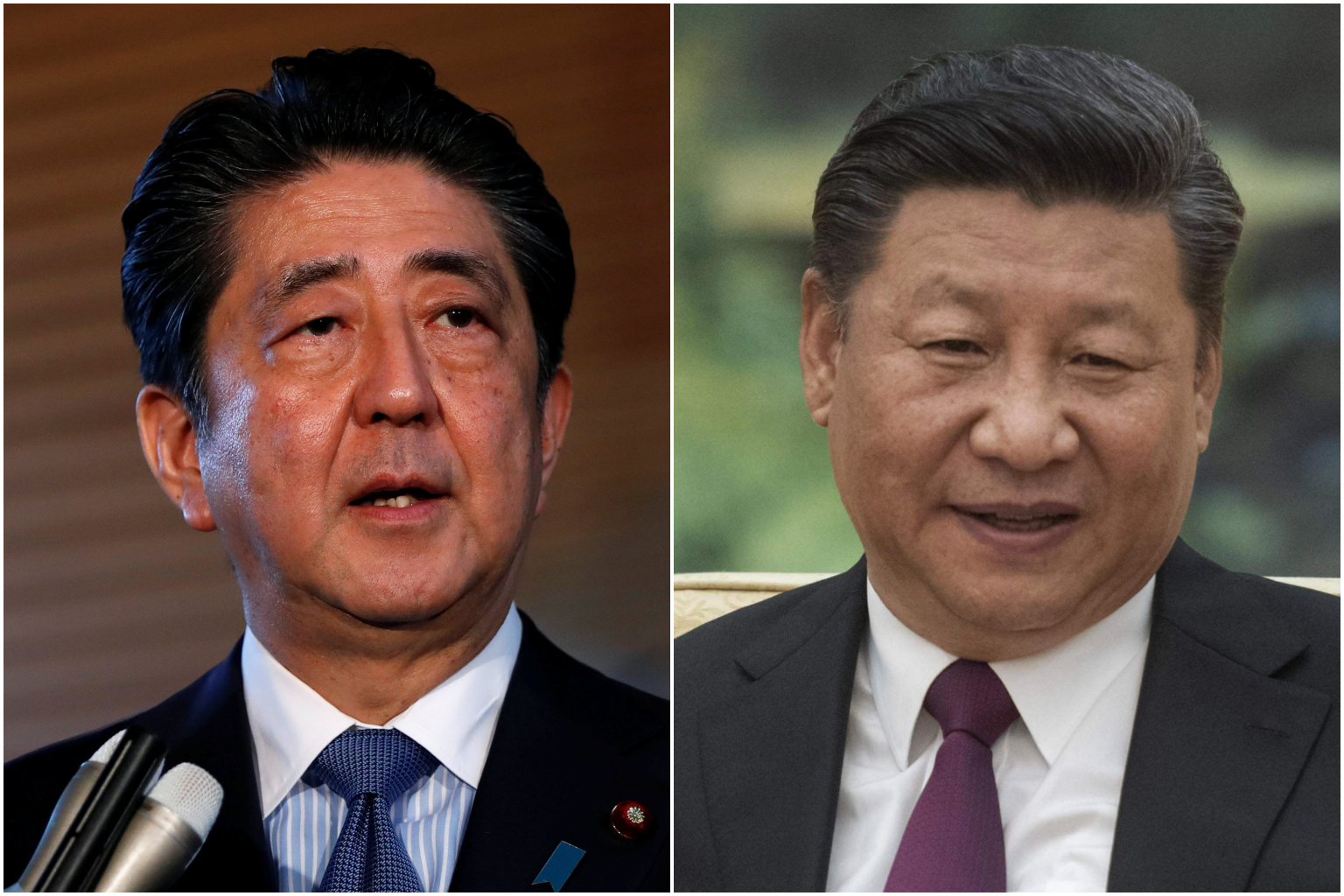Japan-North Korea summit must tackle abduction issue, relations with China back on ‘normal track’: PM Abe
Sign up now: Get ST's newsletters delivered to your inbox

Japanese Prime Minister Shinzo Abe's (left) comments came amid intensifying US trade pressure on Beijing and Tokyo that has raised concerns about protectionism and its impact on the global economy.
PHOTOS: REUTERS, AFP
Follow topic:
TOKYO (AFP, REUTERS, WASHINGTON POST) - Japanese Prime Minister Shinzo Abe said any summit he holds with North Korea's Kim Jong Un must tackle abducted citizens, an issue that has bedevilled relations between the two countries for decades.
North Korea kidnapped scores of Japanese citizens in the 1970s and 1980s to help Pyongyang train its spies, a sore point that Tokyo says has has never been adequately addressed.
"In the end, I have to meet Chairman Kim Jong Un," Abe told the Sankei Shimbun daily in an interview published on Sunday (Sept 2), adding he wished to "break mutual distrust" between the two countries.
But he added: "As long as we hold a meeting, the meeting must contribute to the resolution of the abduction issue".
Tokyo and Pyongyang have long had tense relations, from historical grievances of Japan's wartime brutalities on the Korean peninsula to Pyongyang's regular sabre rattling, including recent missile tests last year that sent rockets heading towards Japan.
Recent months have seen a remarkable diplomatic detente on the Korean peninsula with Kim holding summits with both US President Donald Trump and South Korea's leader Moon Jae-in.
Tokyo fears being shut out of negotiations on North Korea, which have proceeded at a breakneck pace in recent months with Japan largely on the sidelines.
During historic talks on June 12 with Trump in Singapore, Kim reportedly said he was open to a meeting with Abe. Trump promised to work to help bring abductees home from North Korea.
In the interview, Abe also expressed confidence in improving ties with China and said the countries' relationship had returned to a "normal track".
The world's second- and third-largest economies also have a fraught relationship, complicated by longstanding maritime disputes and Japan's wartime legacy.
Abe was also quoted as saying he hoped to invite Chinese President Xi Jinping to Japan in the future.
His comments came amid intensifying US trade pressure on Beijing and Tokyo that has raised concerns about protectionism and its impact on the global economy.
"Premier Li Keqiang visited Japan in May and the Japan-China relationship has completely returned to a normal track," Abe told the Sankei newspaper.
Japan's finance minister expressed similar optimism on Friday, saying the current round of financial dialogue with China was "extremely good", and that both sides agreed to maintain cooperation in macro-economic policies and measures.
US President Donald Trump has repeatedly threatened to impose tariffs as a key part of his economic message, singling out the US auto sector trade deficit with Germany and Japan.
In his interview, Abe said he shared with Trump the larger goal of expanding trade and investment that would benefit both countries, but reiterated that he would not prioritise friendship over national interests in any discussions over trade.
Meanwhile, the Washington Post reported that the Japanese and Chinese governments are considering a visit by Abe to China on Oct 23, exactly 40 years after the Japan-China Peace and Friendship Treaty entered into force.
Abe is expected to stay in the country for about two nights and three days and have a meeting with Chinese President Xi Jinping and other officials to show improvements in bilateral ties, according to a diplomatic source knowledgeable about Japan-China relations.
The visit can be realised only if Abe secures his third consecutive term as president of the ruling Liberal Democratic Party in the LDP presidential election on Sept 20.
It would mark the first visit to China by a Japanese prime minister - other than for international conferences in the country - since a December 2011 visit by then Prime Minister Yoshihiko Noda.
Tokyo and Beijing are slated to hold a forum to discuss cooperation among private firms from both sides in third-party nations with an eye on China's Belt and Road Initiative to create a massive economic zone. Abe is expected to attend that event.

